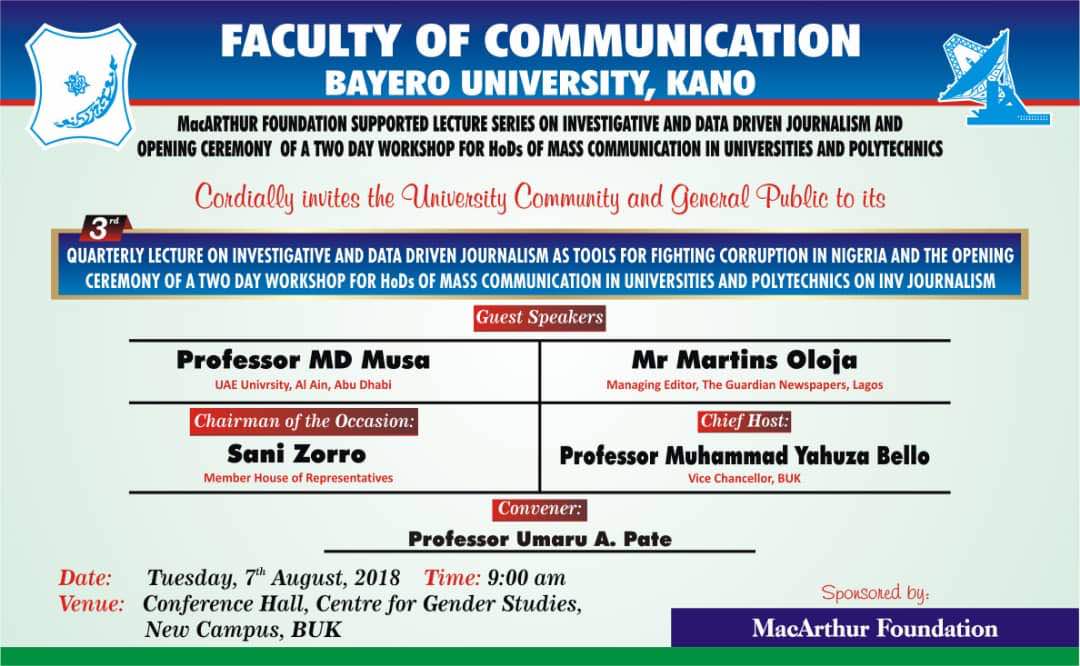Heads of Departments of Mass Communications in Nigerian universities and polytechnics are converging on Bayero University, Kano, (BUK) in north western Nigeria later this week. While in BUK, they will first listen to a lecture on investigative and data driven journalism as tools for fighting corruption in Nigeria and secondly, crack their heads on investigative journalism. It is set to be the biggest coming together of teacher -practitioners in the area of Mass Communications, a discipline that is facing a planned fragmentation in the university system because of a perception that the degree structure is defective vis-a-vis the competence of its products.
Intervention understands that the Chicago based MacArthur Foundation sponsoring the gathering is keen on injecting conceptual and data driven angles to the fight against corruption in Nigeria. Its analysis of a survey it has carried out in the country sometimes back suggested to it that when there are no drugs in the hospitals, when ministerial nominees can scale through screening processes with false documents or when the military haven’t got the hardware to overwhelm insurgents, it is most likely that someone has stolen the money.
It is not only MacArthur Foundation. The civil society in its local and global dimensions has been alarmed by research reports on corruption in Nigeria, particularly the 2014 essay by Awojobi Nathaniel which showed that the elite have stolen crude oil sales to the tune of $400b since independence. His paper is titled “Corruption and Underdevelopment in Africa: A Discourse Approach”.
Anti-corruption wars in Nigeria have been impaired by the perceived instrumentalisation of such wars as anti-opponent operations. Additionally, there are no detailed linking of the unique underdevelopment and life of misery for the majority to the phenomenon of corruption. The question now is how far those who control training of managers of meaning can factor that into their responsibility.




























